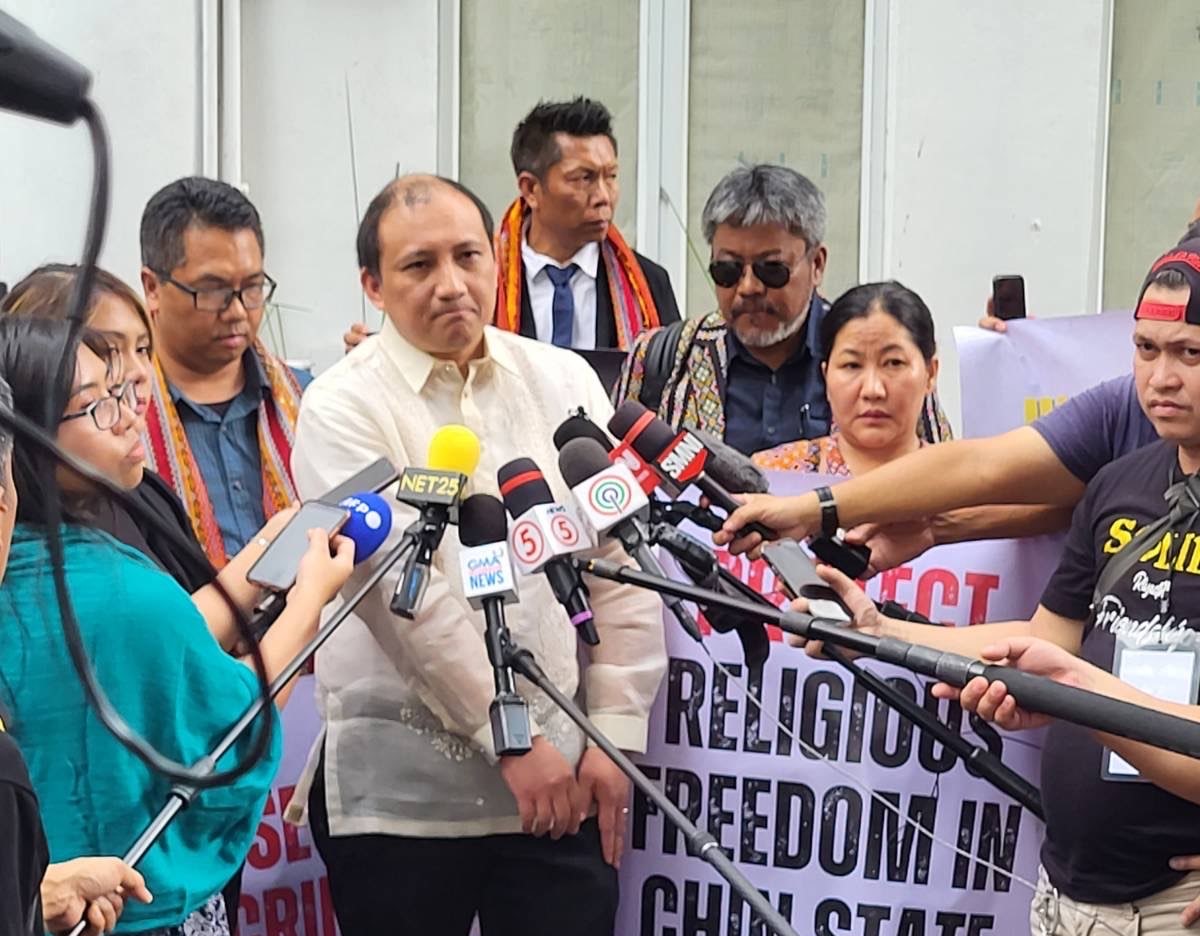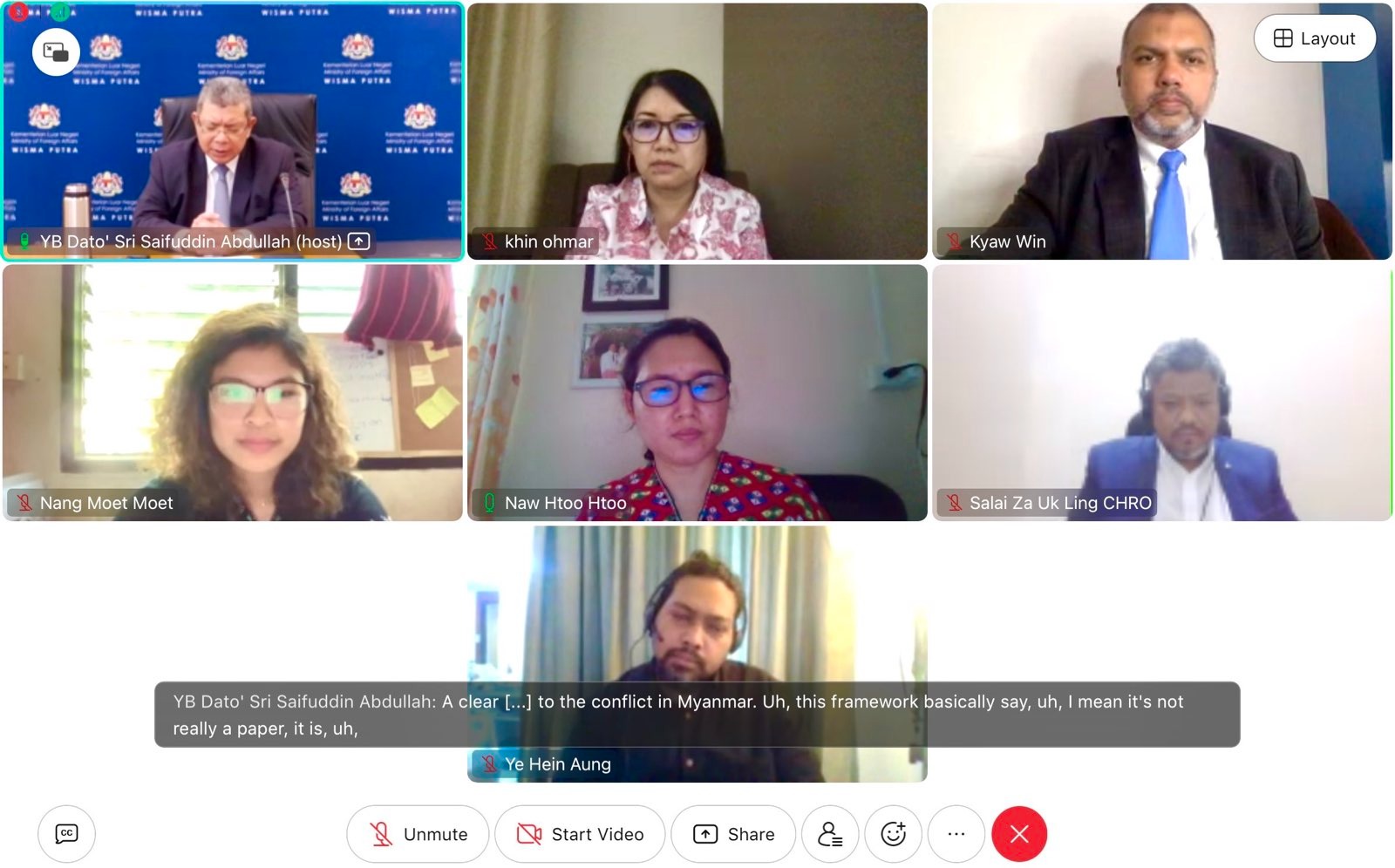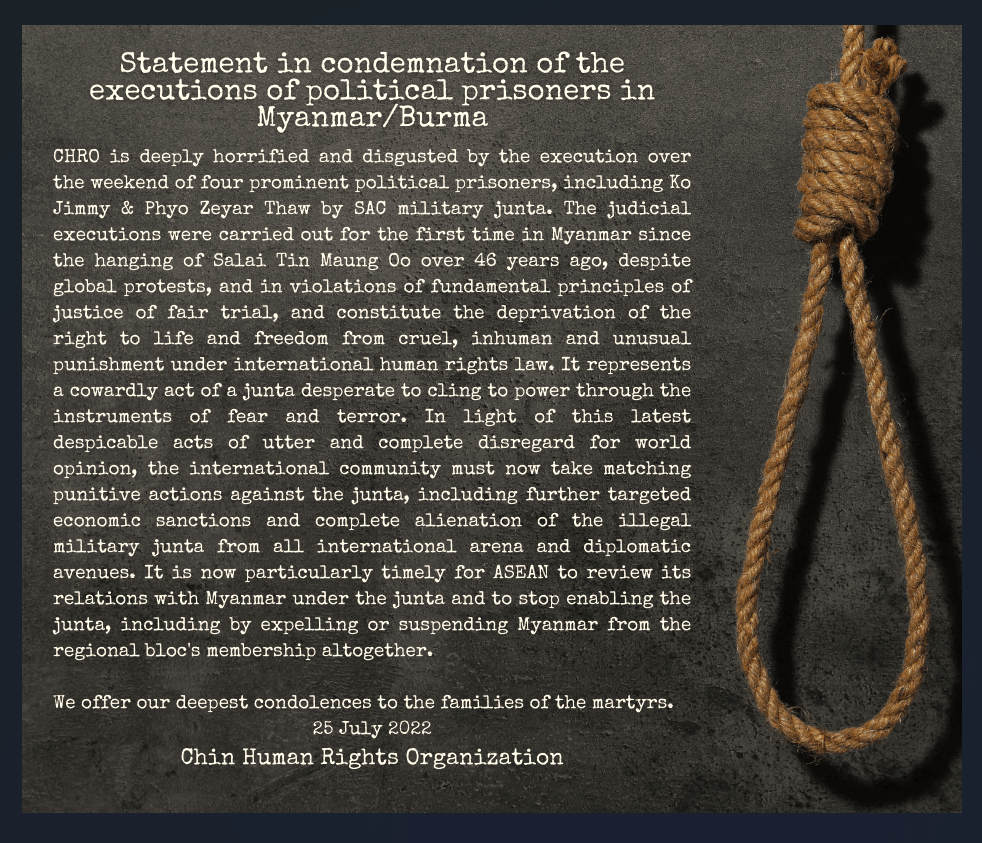
CHRO’s Participation at the 58th UN Human Rights Council
Geneva, Switzerland | As part of its ongoing and longstanding advocacy work to leverage the United Nations human rights mechanism, the Chin Human Rights Organization (CHRO) actively engaged in the Human Rights Council (HRC) Interactive Dialogue and participated in key side events in Geneva from March 19-21, 2025. This engagement reaffirmed CHRO’s unwavering commitment to human rights and accountability,...









